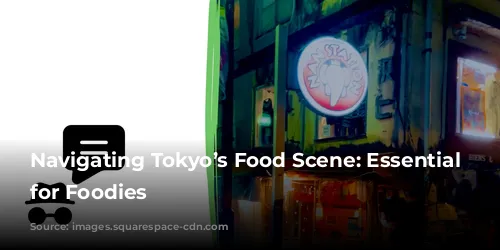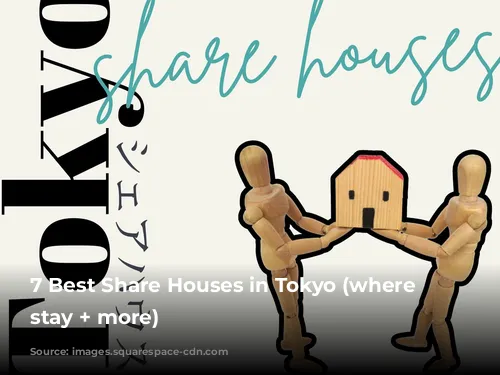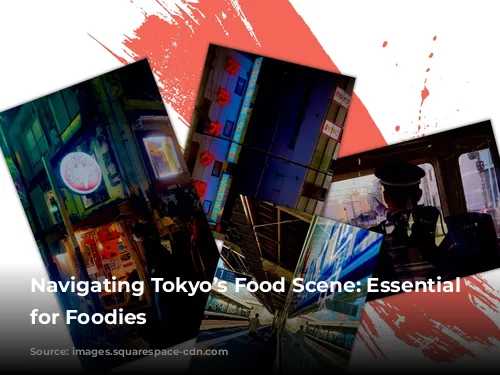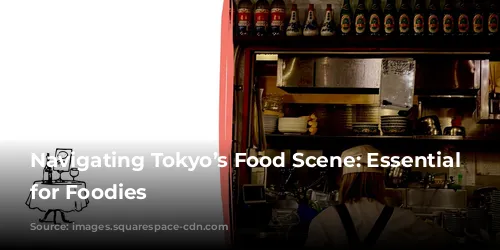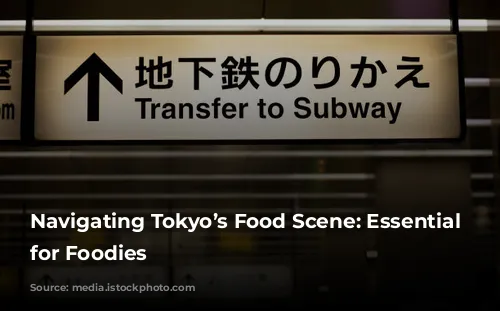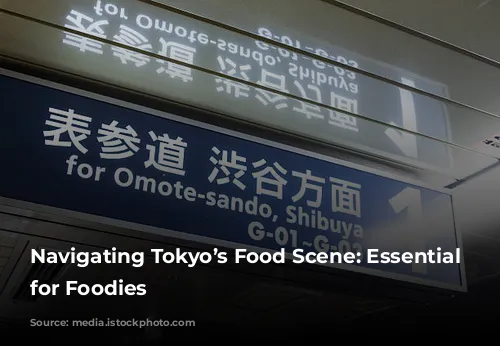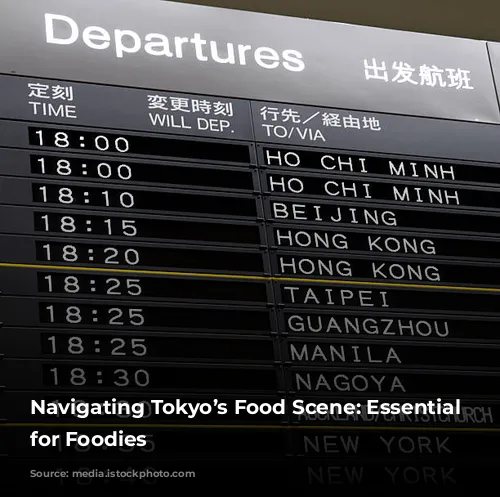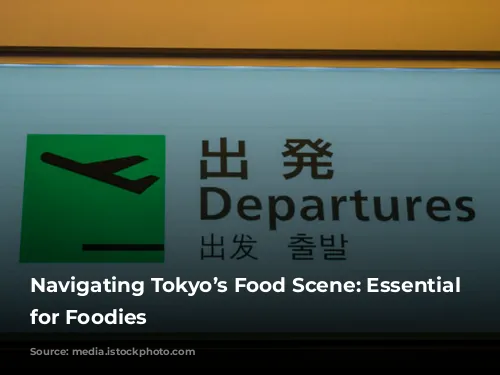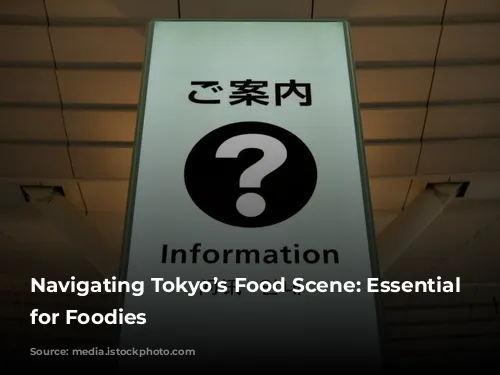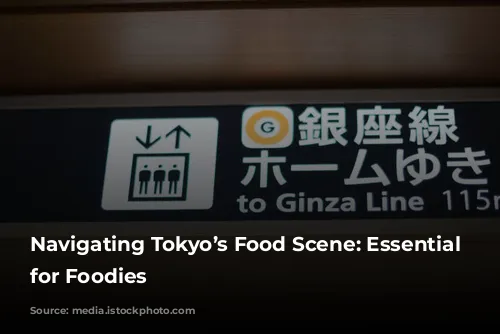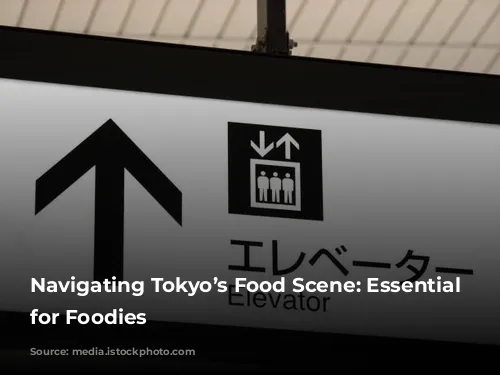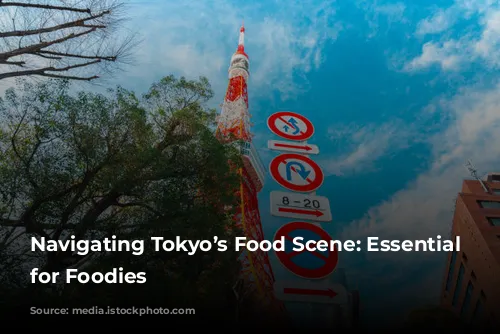Tokyo is a culinary paradise, bursting with an overwhelming array of tantalizing dishes. The city’s food culture is legendary, and experiencing it firsthand is a must for any visitor. To ensure your culinary adventure is smooth and enjoyable, here are some essential tips to navigate the local food scene like a pro.
Ordering and Paying in Japanese Restaurants
Stepping into a Tokyo eatery for the first time can feel a bit daunting, but the ordering process is surprisingly simple. In most establishments, especially smaller ones like ramen shops, you’ll encounter ticket machines. These machines are user-friendly and allow you to choose your desired dish and pay for it before even taking a seat. A ticket with your order will be dispensed, which you then hand to the staff.
If the restaurant doesn’t have a ticket machine, don’t hesitate to flag down a waiter or waitress when you’re ready to order. Simply raise your hand and make eye contact. If they don’t notice you, politely say “sumimasen,” which means “excuse me” in Japanese. Don’t worry about being rude, as this is a perfectly acceptable way to get their attention.
Remember, communication is key. If you’re struggling with the Japanese menu, don’t be shy to ask for an “eigo menu.” This broken Japanese phrase will communicate your need for an English menu.
Common Phrases to Know
When traveling in Japan, you’ll inevitably encounter some common questions, especially when paying for goods. Here are a few essential phrases to know to avoid any confusion:
One of the most frequently asked questions, especially in convenience stores and shops, is whether you need a bag. The Japanese word for “bag” is “fukuro.” If you need one, simply say “onegaishimasu.” If not, politely decline by saying “daijoubu.”
Another common question you might hear is “pointo cardo.” This phrase asks if you have a loyalty card for the store. If you don’t, simply shake your head no.
Here are a few additional helpful phrases to practice:
- “Daijoubu”: It’s okay; I’m fine; no thank you
Remember, the “R” sound in Japanese is pronounced more like a soft “D,” similar to Spanish. For example, “fukuro” sounds like “fuu-kuu-dou.”
Essential Etiquette in Japan
Japan is renowned for its polite and respectful culture. Here are some key etiquette tips to keep in mind:
- Avoid eating or drinking on trains: Japan’s public transportation is clean and efficient, and it’s considered rude to consume food or beverages on trains.
- Don’t eat while walking: Similarly, avoid eating while walking, especially on busy streets. It’s best to find a park or quiet area to enjoy your snacks.
- Respect phone etiquette: Refrain from talking on your phone loudly on trains. It’s generally considered impolite to engage in lengthy conversations on public transport.
- Designated smoking areas: If you smoke, make sure to find designated smoking areas. Smoking in non-designated areas is strictly prohibited.
- Escalator etiquette: Stand on the left side of the escalator, leaving the right side free for walking. This is a common practice in Japan to ensure smooth traffic flow.
Share Houses: An Ideal Accommodation Option for Travelers
Share houses are an excellent accommodation option for travelers looking for a unique and affordable experience in Tokyo. They offer flexible lease terms and are generally more budget-friendly compared to traditional hotels or apartments.
While you’ll be sharing a kitchen, shower, and restroom, you’ll also have your own private room. This shared living arrangement offers a fantastic opportunity to connect with other travelers and locals, making it ideal for solo travelers seeking social interaction.
Share houses are known for being foreigner-friendly, with English-speaking staff to assist you with any queries.
Enjoy your trip to Tokyo! This vibrant city is a culinary and cultural gem, offering an experience you’ll cherish forever.
